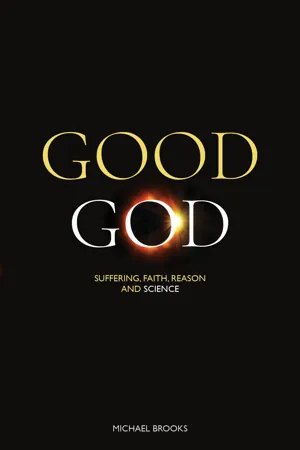
- 254 pages
- English
- ePUB (mobile friendly)
- Available on iOS & Android
About this book
How can Christians believe in an all-powerful, all-knowing and loving God whilst there is so much suffering in the world? Contemporary theology books refer to the problem of theodicy as a significant and unresolved problem. Engaging with theology, biblical study, physics and biology, and philosophy and producing a cohesive synthesis of these subjects, Good God offers an answer that has the potential to re-integrate Christian theology with science and philosophy for the first time since the Enlightenment.
Michael Brooks writes with both academic rigour and pastoral sensitivity. As a science and medicine graduate who is also an ordained minister, he makes science and theology comprehensible to those not trained in either discipline.
The book opens the reader to the notion of a wonderful creation that is so full of the miraculous that this is taken for granted. Good God provides an answer to a very important question in a way that edifies faith and offers eternal hope.
Frequently asked questions
- Essential is ideal for learners and professionals who enjoy exploring a wide range of subjects. Access the Essential Library with 800,000+ trusted titles and best-sellers across business, personal growth, and the humanities. Includes unlimited reading time and Standard Read Aloud voice.
- Complete: Perfect for advanced learners and researchers needing full, unrestricted access. Unlock 1.4M+ books across hundreds of subjects, including academic and specialized titles. The Complete Plan also includes advanced features like Premium Read Aloud and Research Assistant.
Please note we cannot support devices running on iOS 13 and Android 7 or earlier. Learn more about using the app.
Information
Table of contents
- Introduction
- Prologue
- The Christian hope of Heaven
- Theophany: Evidence of God’s love for the cosmos
- Moral evil and natural evil
- How might God act in the cosmos?
- Some implications of the proposed theodicy
- Epilogue
- Further comparison with some other theodicies
- Bibliography